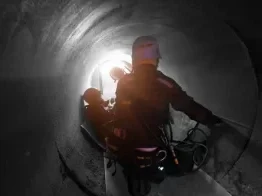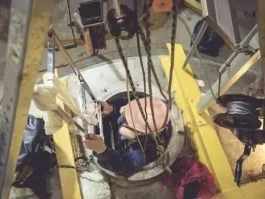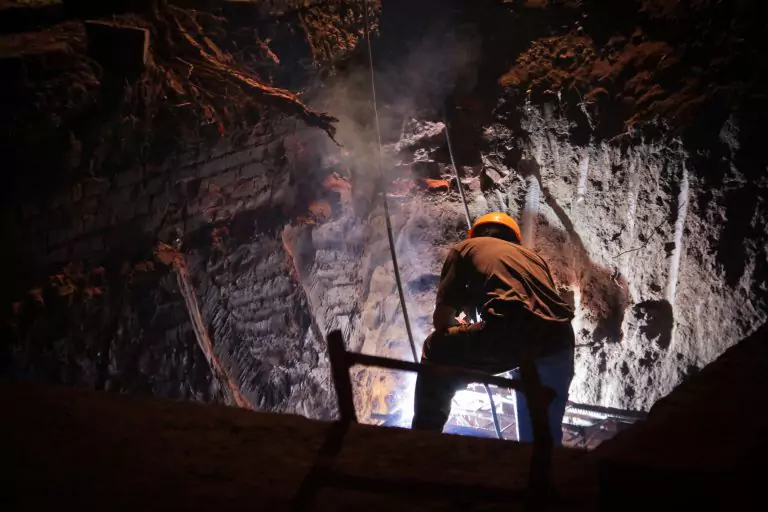Confined space entry can present significant risks and challenges to workers across various industries. These tight and often hazardous environments require specialised knowledge and training to ensure the safety of all personnel involved. Confined spaces courses are pivotal in equipping individuals with the skills to safely navigate and work in such environments.
Understanding Confined Spaces
Before delving into the specifics of who should attend confined space training, it’s essential to understand what constitutes a confined space. A confined space is a workspace with limited entry and exit points, is not designed for continuous occupancy, and may have hazardous conditions such as poor ventilation, toxic gases, or the potential for engulfment.
Who Should Attend Confined Spaces Training?
Workers
Any individual entering or working in a confined space should undergo confined space training. This includes employees who might occasionally enter such areas for maintenance, repair, inspection, or other tasks.
Supervisors and Managers
Supervisors and managers responsible for overseeing workers in confined space entry must also attend training. Their understanding of the risks and safety protocols is crucial for adequate supervision and emergency response.
Safety Personnel
Safety officers, emergency responders, and individuals responsible for implementing safety measures should undergo specialised training. They need to possess an in-depth understanding of confined space hazards and the procedures to mitigate them.
Contractors and Subcontractors
External personnel hired for specific projects involving confined spaces should be trained to ensure they follow proper safety protocols and adhere to industry standards.

Why Is Confined Space Entry Training Crucial?
Risk Identification and Mitigation
Confined spaces training teaches participants to recognise potential hazards within these environments. This includes identifying toxic gases, low oxygen levels, potential for engulfment, and other dangers. With proper training, individuals can take proactive measures to mitigate these risks.
Emergency Response
Knowing how to respond swiftly and effectively in an emergency can be a matter of life and death. Confined spaces courses cover emergency procedures, evacuation plans, and the use of safety equipment, ensuring that all personnel can respond appropriately under stress.
Legislative Compliance
Many jurisdictions have specific regulations and standards regarding confined space entry work. Proper training ensures workers and employers comply with these regulations, avoiding legal complications and penalties.
Enhanced Workplace Safety Culture
Investing in the safety of employees fosters a culture of care within an organisation. When employees see that their well-being is a priority, their morale improves, and they are more likely to follow safety protocols.
Specialised Knowledge of Complex Environments
Confined space entry can be intricate and complex, often requiring individuals to navigate tight spaces, irregular layouts, and challenging physical conditions. Proper training equips workers with the knowledge of manoeuvring within these environments while minimising risks. This includes understanding the correct use of safety equipment, entry and exit procedures, and communication protocols.
Real-life Scenarios and Practical Exercises
Effective confined space training often includes simulations and practical exercises replicating real-life scenarios. These exercises offer participants a hands-on experience, allowing them to apply theoretical knowledge in a controlled environment. This practical approach enhances their ability to respond swiftly and confidently when faced with unexpected situations.
Hazard Awareness and Prevention
One of the primary goals of confined space training is to foster hazard awareness. Participants learn to recognise potential dangers such as toxic fumes, oxygen deficiency, fire hazards, and the risk of entrapment. With this understanding, workers are better equipped to assess their surroundings and make informed decisions that prioritise their safety and that of their colleagues.
Collaboration and Communication
Confined space work often involves collaboration among multiple team members. Effective communication is crucial for coordinating actions, responding to emergencies, and ensuring everyone’s safety. Confined spaces training emphasises the importance of clear and concise communication, even in high-stress situations, to prevent misunderstandings that could lead to accidents.
Compliance with Industry Standards
Industries that involve confined space work are subject to stringent regulations and safety standards. Employers have a legal and ethical responsibility to ensure their workforce complies with these standards. Confined spaces training not only educates participants about these regulations but also instils a sense of responsibility to adhere to them, reducing the risk of legal complications.
Continuous Improvement and Adaptation
As our understanding of confined space hazards and safety protocols evolves, so does the training curriculum. Attending confined space training allows individuals to stay up to date with the latest safety practices, equipment, and technological advancements. This commitment to continuous improvement is a testament to an organisation’s dedication to its employees’ well-being.
Psychological Preparedness
Working in confined spaces can be mentally challenging, inducing feelings of isolation and anxiety. Proper training helps individuals develop the psychological resilience needed to cope with the stresses associated with these environments. Participants learn techniques to manage stress, stay focused, and make rational decisions even when uncomfortable.
Return on Investment (ROI)
While investing in confined space training requires time and resources, the benefits outweigh the costs. A safer work environment leads to fewer accidents, reduced downtime, lower insurance premiums, and an overall increase in operational efficiency. The investment in training is a strategic move that contributes to the organisation’s long-term success.
Enrol in a Confined Space Course Now!
Confined space training is a beacon of knowledge and preparedness, illuminating the path to a safer and more secure workplace. By investing in the education of workers to ensure occupational safety, supervisors, and safety personnel, organisations not only fulfil their legal obligations but also demonstrate a genuine commitment to the well-being of their team members.
The empowerment that confined spaces training provides extends beyond the workspace boundaries, fostering a culture where safety is paramount, collaboration is fortified, and lives are safeguarded. As industries continue to evolve, let us all march forward with the knowledge that in the world of confined spaces, training isn’t just an obligation—it’s an investment for a brighter, safer future.
Ready to enhance your organisation’s safety standards and equip your team with the skills they need to thrive in confined spaces? Contact Australian Training Institute today to learn more about our comprehensive confined spaces training programs and take the first step towards a more secure and successful workplace. Your employees’ safety is our priority, and we’re here to support you every step of the way.
View All Courses




